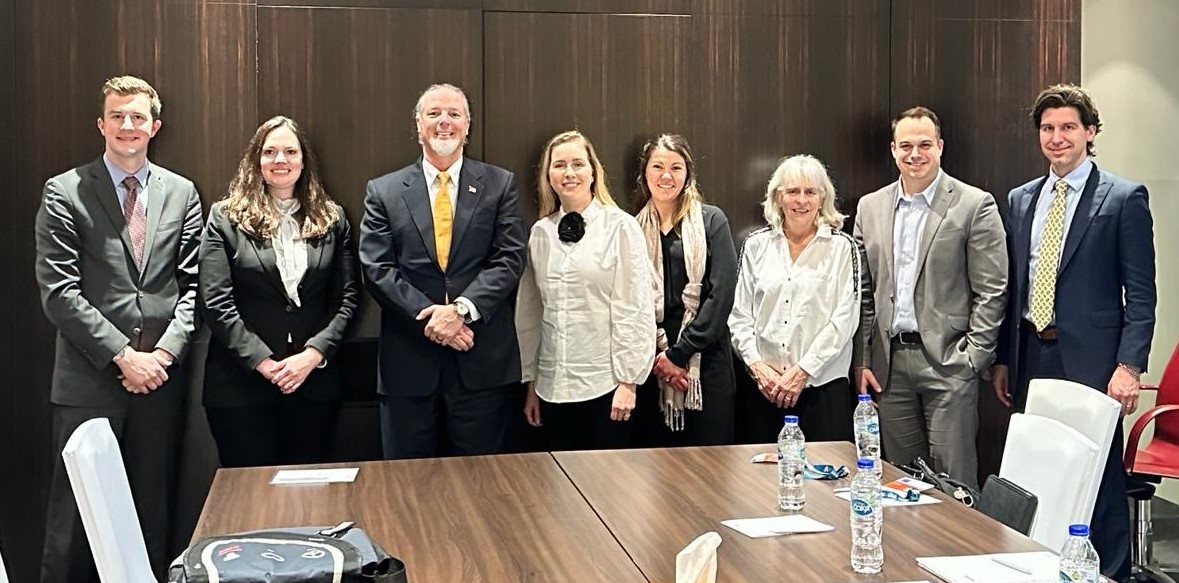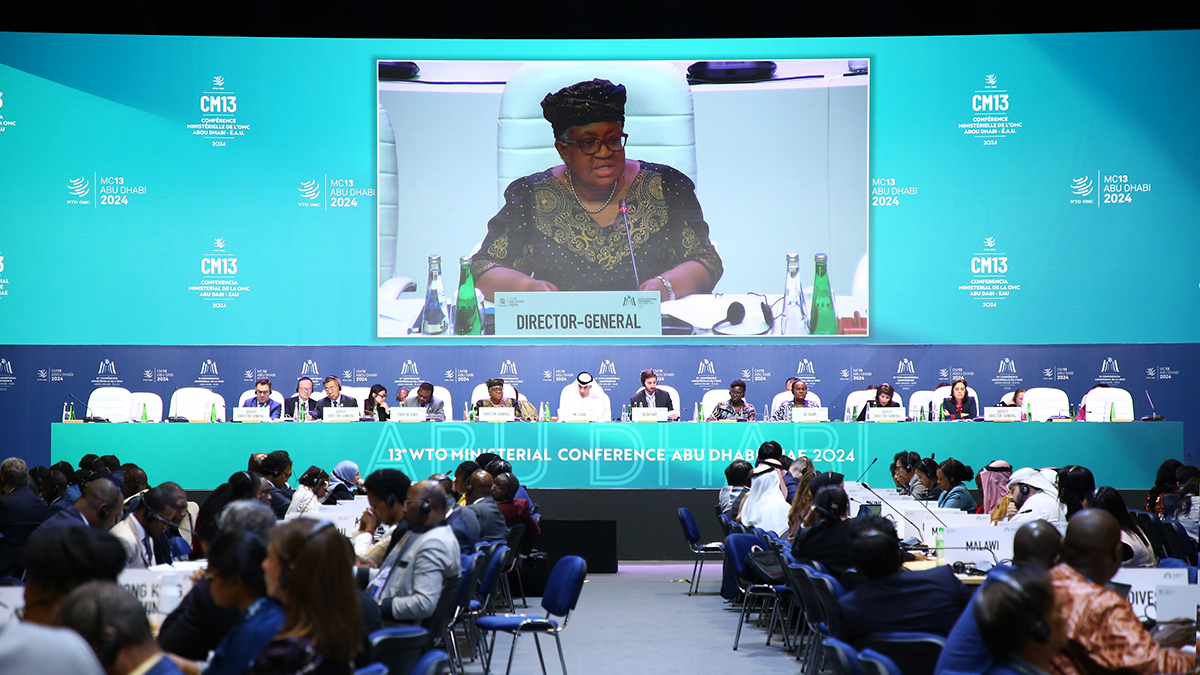To misquote Mark Twain, reports of the death of agricultural negotiations at the World Trade Organization (WTO) are exaggerated. That is a key message for the world’s wheat growers and buyers following the Thirteenth WTO Ministerial Conference (MC13) in Abu Dhabi, United Arab Emirates. In the WTO photo above, Director General Okonjo-Iweala encouraged members to close remaining gaps to secure outcomes during the Conference.
“Going into MC13 negotiations, we did not want to see any backsliding on past progress made on agricultural commitments at the WTO,” said U.S. Wheat Associates (USW) Director of Trade Policy Peter Laudeman, who joined a coalition of U.S. agricultural representatives at the Conference. “Fortunately, the U.S. negotiating team and many other countries were able to hold firm, particularly against India’s protection of its trade-distorting wheat and rice policies.”
On Feb. 29, 2024, during the Ministerial, Politico Pro trade reporter Doug Palmer provided additional background about the agricultural negotiations.
“The U.S. farm groups contend India’s me-first approach is a non-starter because the “peace clause” agreed in Bali has allowed it to accumulate huge rice and wheat stocks that it buys at above market prices and then sells into world markets at a discount,” Palmer wrote. “They also argue there is a much older mandate for a broad-based negotiation in the 1994 WTO Agriculture Agreement that includes trade-distorting domestic support and market access barriers that countries impose to keep out farm exports.”
For more information about U.S. wheat industry positions on WTO agricultural policy, visit “USW Trade Policy Team Addresses India’s Subsidies, Turkish Flour at WTO.”

Shared Interests
Laudeman would agree with U.S. Trade Representative (USTR) Ambassador Katherine Tai‘s post-conference statement that, “Members have worked to identify shared interests and build convergence in a collaborative way. Members are identifying new ideas and improvements that can help all of us more effectively resolve disputes and make the system more accessible at the same time.”
The U.S. government negotiating team including USTR Chief Agricultural Negotiator Doug McKalip deserves credit for holding the line on the issues in agriculture said Laudeman who also noted that support existing commitments is more widespread than in the past.
Opportunity to Advance Negotiations
“Many countries that agreed that India’s firm stance on Public Stockholding (PHS) was not productive in advancing agricultural negotiations at the WTO,” Laudeman said. “Notably, many Least Developed Countries recognized that India’s PSH program had negatively affected their own food security.”
Ambassador Tai went on to say that while the United States is disappointed that WTO members were not able to reach consensus on agriculture, “the United States will continue to engage with other Members to achieve meaningful outcomes on these important issues.”
“The message for our wheat farmers and our customers around the world is that the WTO is not broken yet,” Laudeman said. “And we are still standing up for commitments that have been made and creatively looking for progress in the way forward.”


